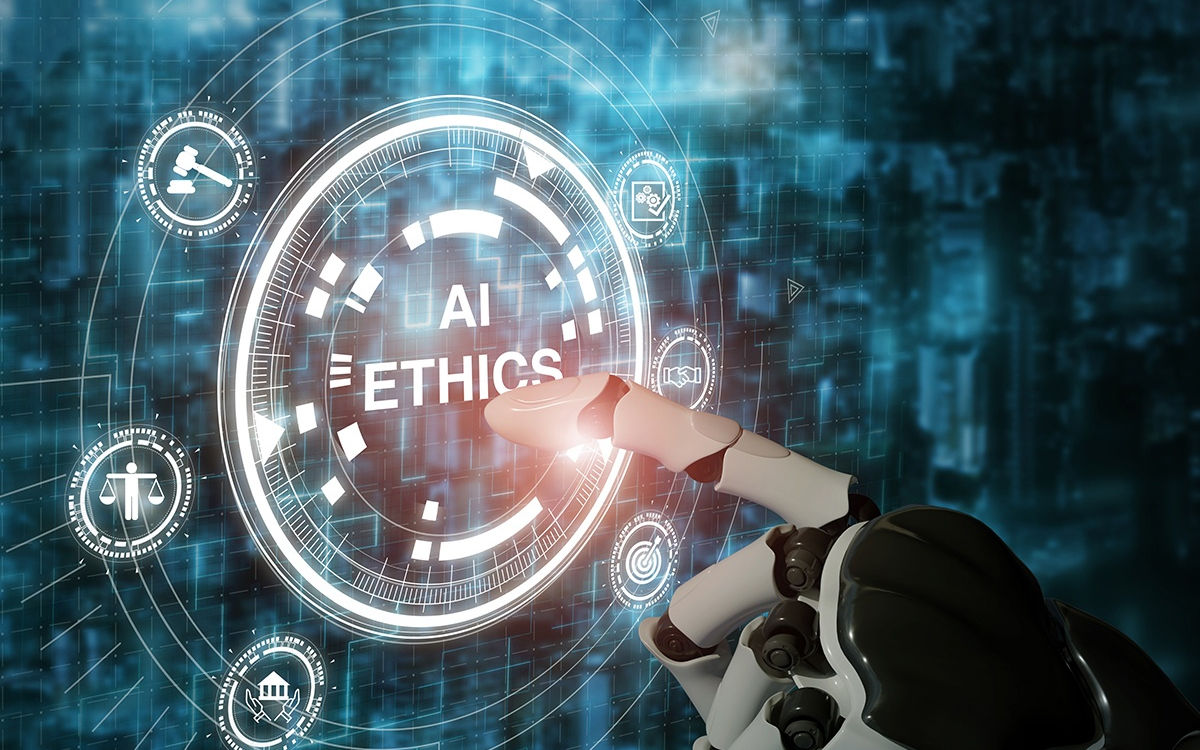Further, AI ethics comes in a specific framework as-
- Privacy and security
- Dependability and safety
- Fairness and equity
- Accountability and transparency

Generally, artificial intelligence (AI) strives to build machines capable of carrying out tasks that typically require human intelligence. Likewise, AI Ethics makes it possible for computers and other devices to decide what to do, carry it out, and even appear to think like humans.
Additionally, AI systems come in various fields, such as stock trading, robot control, self-driving cars, and medical diagnosis. Similarly, humans contain a variety of cognitive biases, including recent results and confirmation bias, which exhibits in our behaviors and data.
As all ethical machine learning algorithms build on data, we must design experiments and algorithms. Therefore, it retains the ability of artificial intelligence to intensify and extend these human tendencies at a massive scale.
Consequently, AI ethics considers a set of moral guidelines and methods to guide the creation and responsible artificial intelligence technology. In addition, we can distinguish between right and wrong techniques using a set of moral principles called AI ethical principles.
Likewise, an ethical framework for artificial intelligence guides its development and results. Moreover, companies now focus more on executing automation and data-driven decision-making across their corps due to the evolution of big data.
Similarly, they overlook unexpected outcomes in some AI applications due to subpar upfront research design and biased datasets for better business outcomes.
Moreover, machine and computational ethics are also used to describe ethics in AI. What constitutes “good” or “bad” attitudes toward AI algorithms still looks like a mystery because it still in its infancy.
Besides this, the loss of jobs due to automation cannot expect. However, companies look into automating tasks where machines can perform better than humans. This happens as they work faster, more accurately, less prone to error, etc., rather than replacing people who intend to hold those positions.
On the other hand, the ethics of machine learning & Artificial intelligence systems can cause minor damage. However, AI Ethics does not imply that these systems will never cause harm because no machine can expect how its actions will affect other people or things.
As a result, while computers should never need an explanation because everything is always explicit in their codebase, humans may take time to comprehend why something occurred.
If an algorithm seems harmful, it will make it possible to identify which components kept responsible so they can resolve or replace. There were 11 clusters of principles in the analysis of 84 ethics guidelines for AI. A few of them are listed below.
While business adoption of artificial intelligence is accelerating, the same cannot be said for AI ethics. In the interests of the person, society, and environment, ethical AI makes the system available. Likewise, we need to start thinking about the ethics of AI right away.
People still have many unanswered questions, like whether or not robots should have the same rights as people. The benefit will rack up to all people to eliminate unfair bias. The ethically just AI system that was created. It won’t engage in any unjustified discrimination against specific people or groups.